Equity
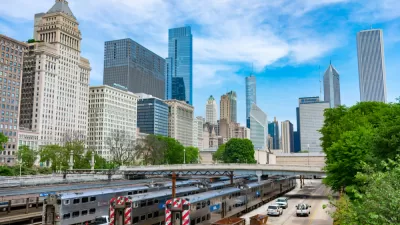
Chicago Passes Equitable TOD Ordinance
The new legislation will promote more development near transit in the city’s underserved neighborhoods and improve safety for pedestrians and other road users.
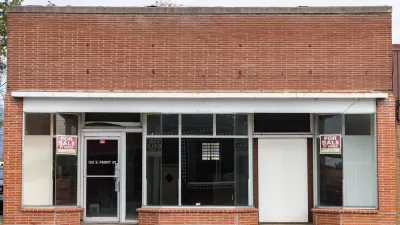
The Racial Gap in Commercial Real Estate Ownership
Just three percent of Black households own commercial real estate, making it more difficult for Black entrepreneurs to establish businesses and build wealth.
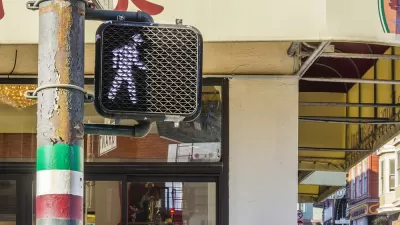
The Push To Decriminalize Jaywalking
Supporters of decriminalization argue that jaywalking laws don’t keep pedestrians safe and disproportionately burden Black and brown communities with fines.
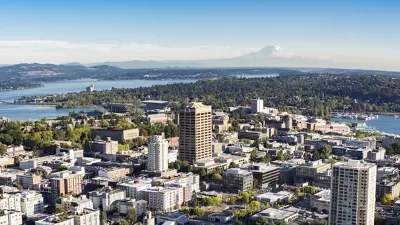
What Should the ‘Next Seattle’ Look Like?
With the city getting ready to update its comprehensive plan, one writer examines some models for improving affordability, accessibility, and community in Seattle.
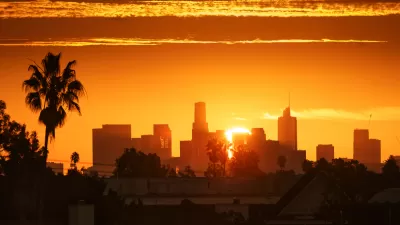
Mapping Heat Inequality
A new mapping tool underscores inequities in infrastructure that lead to higher rates of heat-related illnesses in low-income neighborhoods.

New York Councilmembers Seek Action Against Cashless ‘Fast-Delivery’ Stores
After the city instituted a ban on cashless businesses, calling the model discriminatory against poor New Yorkers who rely on cash transactions, a study found that more than 80 percent of new fast-delivery stores don’t accept cash.
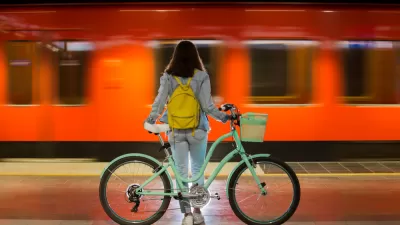
The Business Case for Multimodal Transportation Planning
Travel demands are changing and so should planning. There are good reasons for communities to spend less on automobile facilities and more on walking, bicycling, and public transit. Let’s examine why.
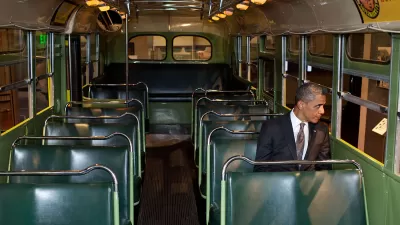
Obama on the Record Against Sprawl, Inequality by Design
Former President Barack Obama was at the AIA’s national conference in Chicago earlier this month. His presentation included some strong words about the effects of sprawl.
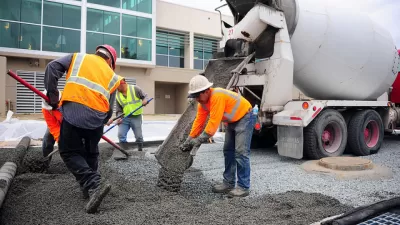
State of the Cities: Mayors Focused on Infrastructure, Economic Development
Mayors around the country are pledging to bolster infrastructure projects with new federal funding, generate economic growth, and support the most vulnerable residents.
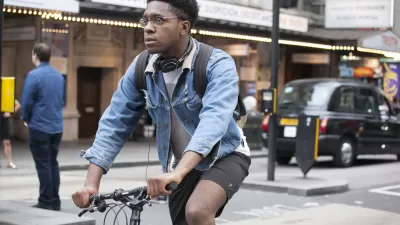
Black Cyclists Dying at Alarmingly High Rates
New data reveals that Black cyclists, despite riding fewer miles than their White counterparts, die more than four times as often on American roads.
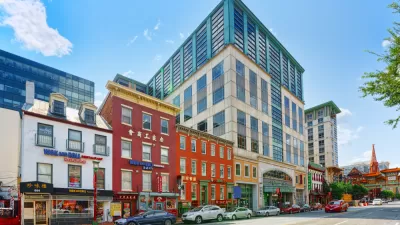
How Historic Inequity Shapes D.C.’s Transit-Oriented Development
A series of articles traces the history and policies behind Washington, D.C.’s efforts to promote equitable transit-oriented development.

What Is Tactical Urbanism?
Tactical urbanism, one of the most common buzzwords in planning over the past decade, describes a variety of low-cost, incremental public realm design interventions.
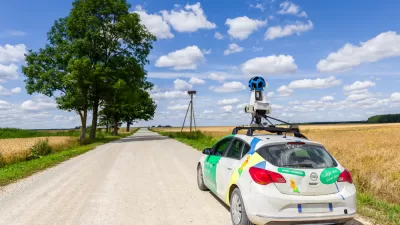
How Digital Mapping Can Reinforce Inequity
Digital mapping tools like Google Street View often obscure the realities of cities and concentrate their resources in the wealthiest countries, effectively ‘erasing’ some places from the global map.
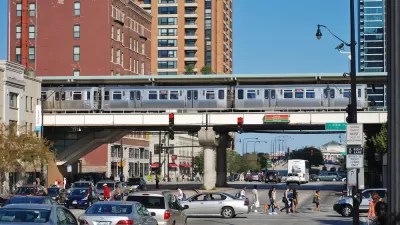
Proposed Chicago Ordinance Would Promote Affordable Housing Near Transit
The Equitable Transit-Oriented Development ordinance could advance equity and reduce car dependency, but the legislation faces resistance from some city council members.
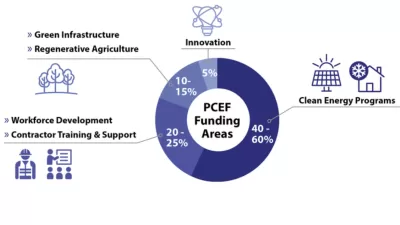
Funding Urban Climate Justice
The Portland Clean Energy Community Benefits Fund stands out as an example of local grassroots climate action—in this case, the kind of action that makes other climate projects and programs possible.
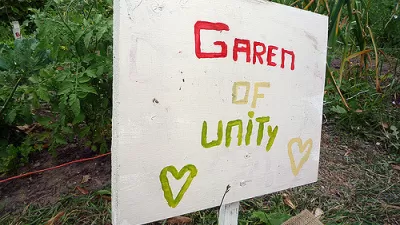
No Connection Between Gardens and Gentrification in Detroit, Study Says
Research from late 2021 documented the footprint of urban gardens in Detroit, finding evidence of inequities but not gentrification.
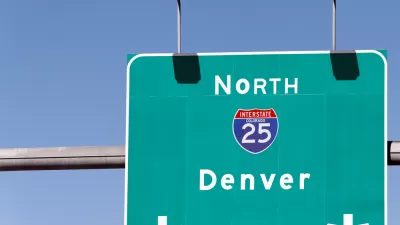
Denver Freeway Widening Plans on Hold
The Colorado Department of Transportation’s plan to widen the Interstate 25 freeway through Denver is one of a few plans to widen urban freeways under consideration in the United States.
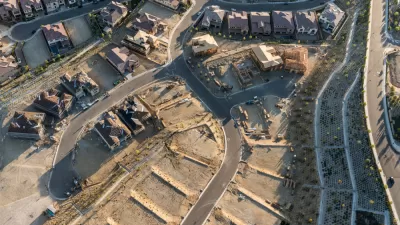
Report: How Housing Inequity Shrinks Economic Opportunities
Increasingly unaffordable housing in most U.S. metropolitan areas is pushing low-income workers farther away, decreasing their access to economic opportunities.
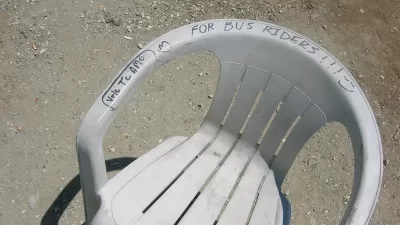
Federal Infrastructure Funding a Rare Opportunity to Improve the Nation’s Bus Shelters
Transit systems faced with decreasing ridership could accommodate access to the most widely available form of transit by building bus shelters. The federal infrastructure bill provides a big opportunity to do so.
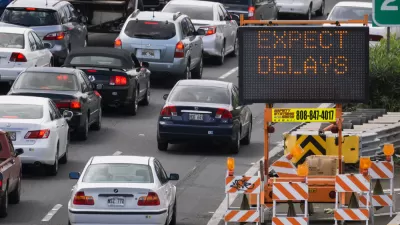
The New Normal: Less Transit, More Congestion
With transit systems still far below historic levels, and congestion not budging, the worst effects of an automobile dependent nation fall on the environment and low-income households.
Pagination
Urban Design for Planners 1: Software Tools
This six-course series explores essential urban design concepts using open source software and equips planners with the tools they need to participate fully in the urban design process.
Planning for Universal Design
Learn the tools for implementing Universal Design in planning regulations.
Caltrans
Smith Gee Studio
Institute for Housing and Urban Development Studies (IHS)
City of Grandview
Harvard GSD Executive Education
Toledo-Lucas County Plan Commissions
Salt Lake City
NYU Wagner Graduate School of Public Service


































